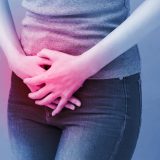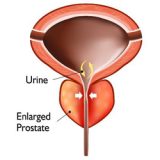Men’s Health
Low Testosterone
What is low testosterone (male hypogonadism)?
 Low testosterone (male hypogonadism) is a condition in which the testes (testicles, the male reproductive glands) do not produce enough testosterone (a male sex hormone).
Low testosterone (male hypogonadism) is a condition in which the testes (testicles, the male reproductive glands) do not produce enough testosterone (a male sex hormone).
In men, testosterone helps maintain and develop:
- Sexual features
- Muscle mass
- Adequate levels of red blood cells
- Bone density
- Sense of well-being
- Sexual and reproductive function
What causes low testosterone?
As a man ages, the amount of testosterone in his body gradually drops. This natural decline starts after age 30 and continues (about 1% per year) throughout his life.
There are many other potential causes of low testosterone, including the following:
- Injury (trauma, interrupted blood supply to the testes) or infection of the testes (orchitis)
- Chemotherapy for cancer
- Metabolic disorders such as hemochromatosis (too much iron in the body)
- Dysfunction or tumors of the pituitary gland
- Medications, including opioids, hormones used to treat prostate cancer, and steroids (such as prednisone)
- Acute (short-term) or chronic (long-term) illness
- Alcohol abuse
- Cirrhosis of the liver
- Chronic renal (kidney) failure
- HIV/AIDS
- Inflammatory conditions such as sarcoidosis (a condition that causes inflammation of the lungs and other organs)
- Obesity or extreme weight loss
- Uncontrolled type 2 diabetes mellitus
- Congenital defect (present at birth)
- Obstructive sleep apnea
- Aging
- Estrogen excess (usually from an external or environmental source)
- Previous anabolic steroid abuse
- Severe primary hypothyroidism
- Pubertal delay
- Trauma (head injury)
- Radiation exposure or prior surgery of the brain
What are the symptoms of low testosterone?
Symptoms of low testosterone depend on the age of person, and include the following:
- Low sex drive
- Erectile dysfunction
- Decreased sense of well-being
- Depressed mood
- Difficulties with concentration and memory
- Fatigue
- Moodiness and irritability
- Loss of muscular strength
Other changes that occur with low testosterone include:
- A decrease in hemoglobin and mild anemia
- A decrease in body hair
- Thinning of the bones (osteoporosis)
- Increased body fat
- Breast development (gynecomastia)
- Infertility
What are some treatments for low testosterone?
TESTOPEL® (testosterone pellets) is approved for testosterone replacement therapy in adult males for certain conditions associated with low or absent testosterone in the body.
AVEED is a prescription medicine that contains testosterone. AVEED is used to treat adult males who have low or no testosterone due to certain medical conditions. AVEED is only for adult males who need testosterone replacement therapy and when the benefit of receiving AVEED is more than the risk of POME and anaphylaxis.
Testosterone topical gel is used for the treatment of males whose bodies do not make enough natural testosterone, a condition called hypogonadism. Testosterone is a male hormone responsible for the growth and development of the male sex organs and maintenance of secondary sex characteristics.
This product is available in the following dosage forms:
- Gel/Jelly
- Cream
- Solution




